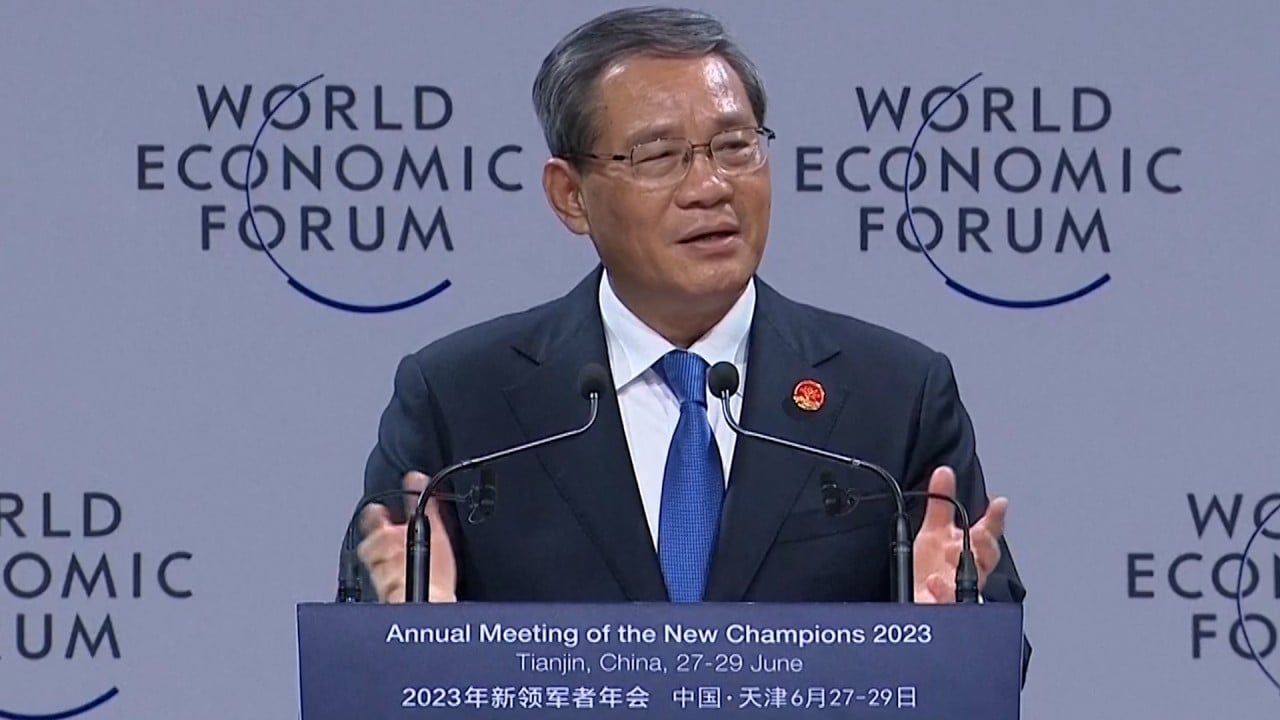
Chinese stocks get ‘net underweight’ snub as economy misfires, while funds make Indonesia top bet: BofA survey
- Fund managers with US$257 billion of assets turn ‘net underweight’ in allocation for the first time this year amid economic wobbles, stimulus lag
- Without policy tonic, more investors are bracing for Chinese stocks to undershoot the 11-year low last seen in October 2022
Investors trimmed their allocation to minus 1 per cent in the latest monthly fund manager survey published by Bank of America (BofA). The percentage has progressively declined from a net overweight of 39 per cent in March, 27 per cent in April, 9 per cent in May and 5 per cent in June.
“Risk aversion [is] getting entrenched,” strategists at the US bank said in a report on July 18. “With one weak print after another, economic surprises in China have cratered, fuelling calls for more than marginal policy stimulus.”
The MSCI China Index, which tracks over 700 companies listed at home and abroad, has been struggling for direction over the past three months with investors frustrated by Beijing’s slow-drip stimulus to overturn the pessimism. The index has lost 4.5 per cent this year, underperforming most markets in the region.
Some 145 fund managers in the region overseeing US$257 billion of assets participated in the survey from July 7 to 13.
‘Recovery is going from bad to worse’: 6 takeaways from China’s economic data
Fewer investors are bullish about the economic outlook. A net 27 per cent of money managers expected the Chinese economy to strengthen over the next 12 months, versus 79 per cent in the April survey. Some 81 per cent of them - unchanged from the level in June - are banking on monetary easing to kick in.
That tonic is becoming increasingly crucial as money managers concluded Chinese households would not be tinkering with their estimated US$87 billion of excess savings in the bank to lift sagging consumer spending.
China reopening may unleash US$87 billion of savings into stocks, UBS says
“The piecemeal measures announced in past weeks suggested policymakers are gradually responding to the downward pressure,” BofA economists including Helen Qiao said in a separate note on Monday. The July Politburo meeting will be a crucial window to look out for pro-growth measures, they added.
Meanwhile, Asian fund managers are turning more positive on the broader region, according to the survey. Nearly 90 per cent of the participants see gains in Asia-Pacific ex-Japan equities in the next 12 months.
Indonesia ranked as the favourite market with net 12 per cent overweight in allocation, while Australia stayed at the bottom with minus 8 per cent. Technology took top spot for sector pick, backed by the momentum in semiconductor demand, the BofA survey showed.



